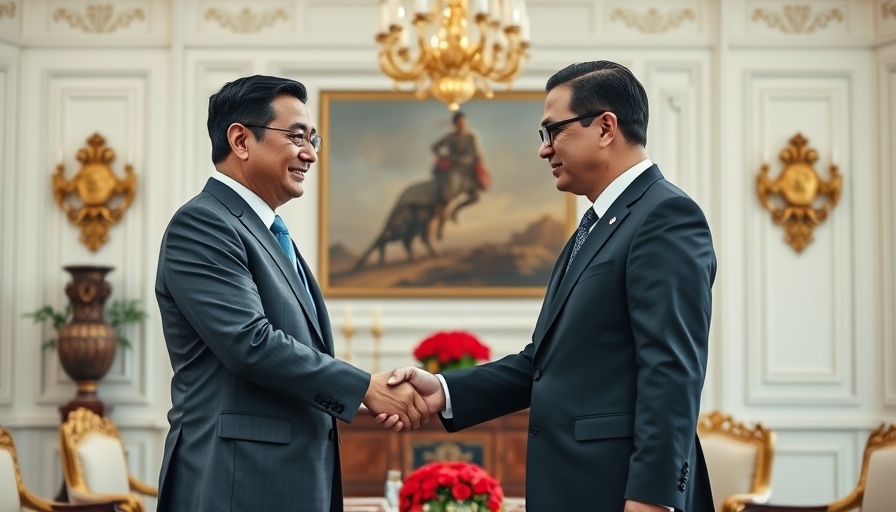
The Stakes Are High: Netanyahu's US Diplomatic Engagement
Israeli Prime Minister Benjamin Netanyahu recently concluded a significant visit to Washington. In a promising tone, he shared, "This was a very productive visit, a very warm visit..." However, the underlying tension in these discussions begs the question: what are the implications if diplomatic talks fail? The statement regarding a military option suggests that while dialogue is preferred, it is not the only path forward.
Understanding the Current Tensions
The recent meetings come at a time when regional stability hangs by a thread. Escalating tensions with Iran, ongoing hostage negotiations, and economic friction in the U.S. have all contributed to a complex diplomatic landscape. As advocates for social justice and humanitarian concerns, it is vital to recognize that these political maneuvers impact the lives of many innocent people caught in the crossfire.
A Broader Context for Christian Advocates
For mission-minded individuals and those engaged in humanitarian work, understanding the interconnections of faith and politics in this context is critical. Just as important as the political conversations are the personal stories of those affected—Christians in the region whose futures may be impacted by decisions made far from their homes. They often find themselves at the mercy of political tides, making awareness and advocacy all the more essential.
The Road Ahead: Fear of Military Action
With Netanyahu's comments on a military option resurfacing, it raises alarms within the Christian community and beyond. Historically, military interventions have had devastating effects on communal and interfaith relationships in the region. As advocates for peace and understanding, the potential for military action must be scrutinized, with calls for continued dialogue and de-escalation taking precedence.
Encouraging Active Participation
Given the complexities of international diplomacy today, how can individuals make a difference? Organizing events or discussions focused on interfaith dialogue encourages understanding and empathy. Theologically informed audiences can also advocate for prayerful consideration of these issues and support initiatives that bring hope and healing to those affected by violence and political strife.
Conclusion: Our Role in Advocacy
As the international community watches the developments following Netanyahu's diplomatic efforts, it is vital for believers to remain engaged. By understanding the nuances of these conversations and their potential repercussions, we can participate in meaningful advocacy here and abroad. Let us commit to be voices for the voiceless in the face of geopolitical complexities.
 Add Row
Add Row  Add
Add 








 Add Row
Add Row  Add
Add 

Write A Comment